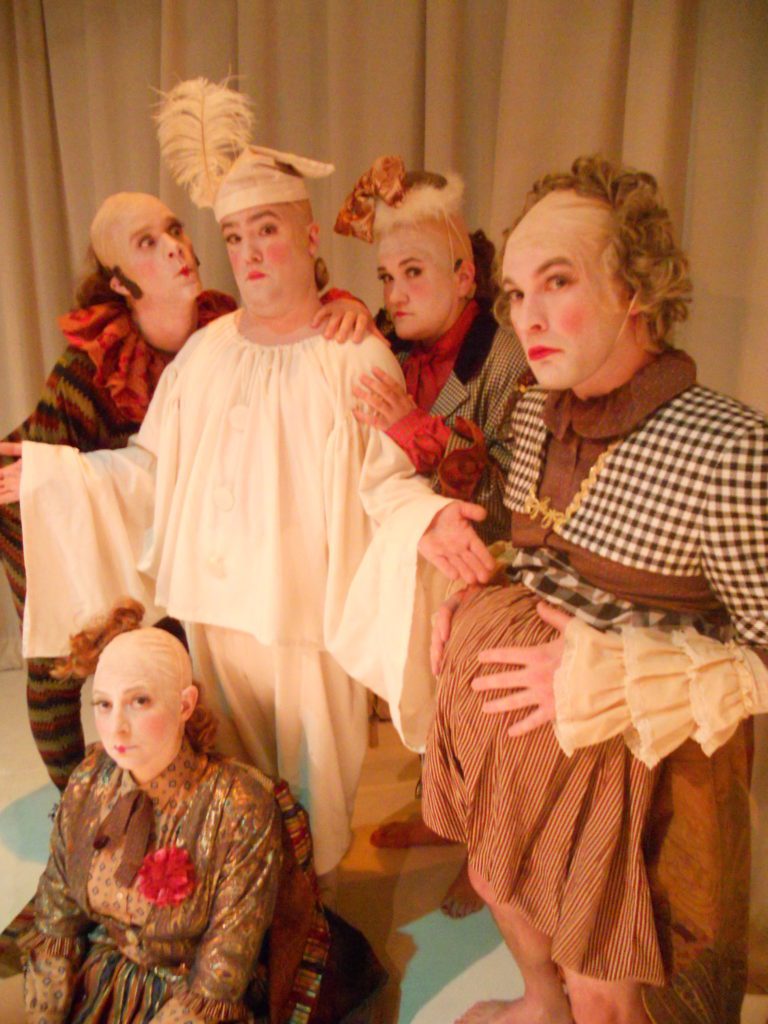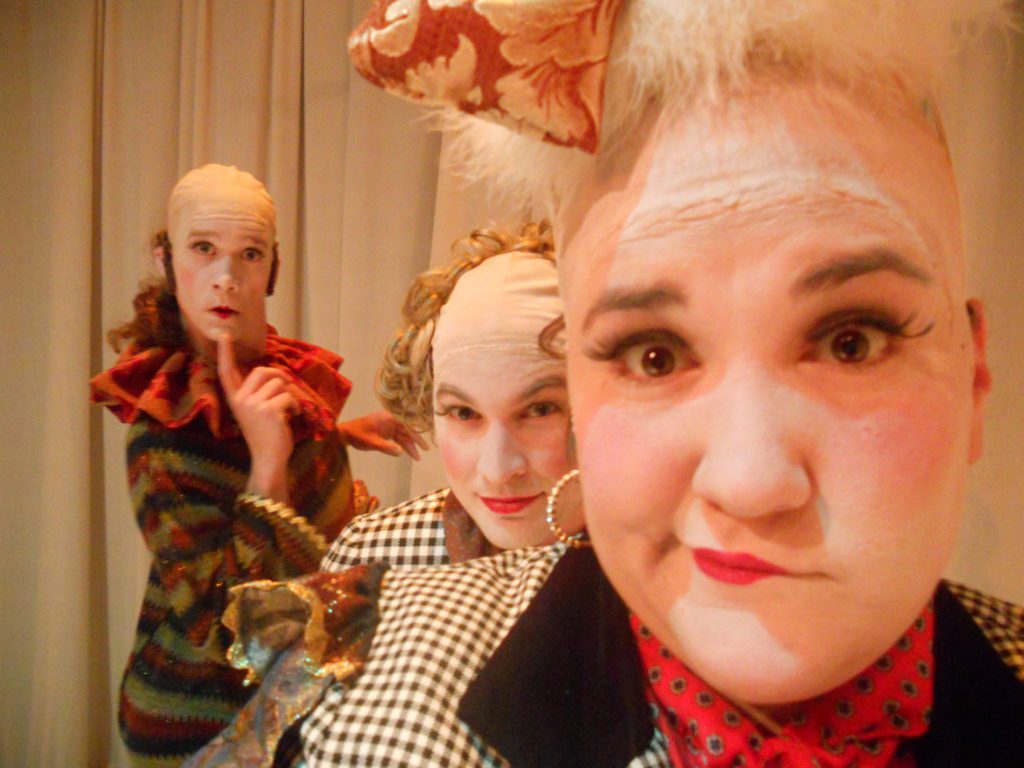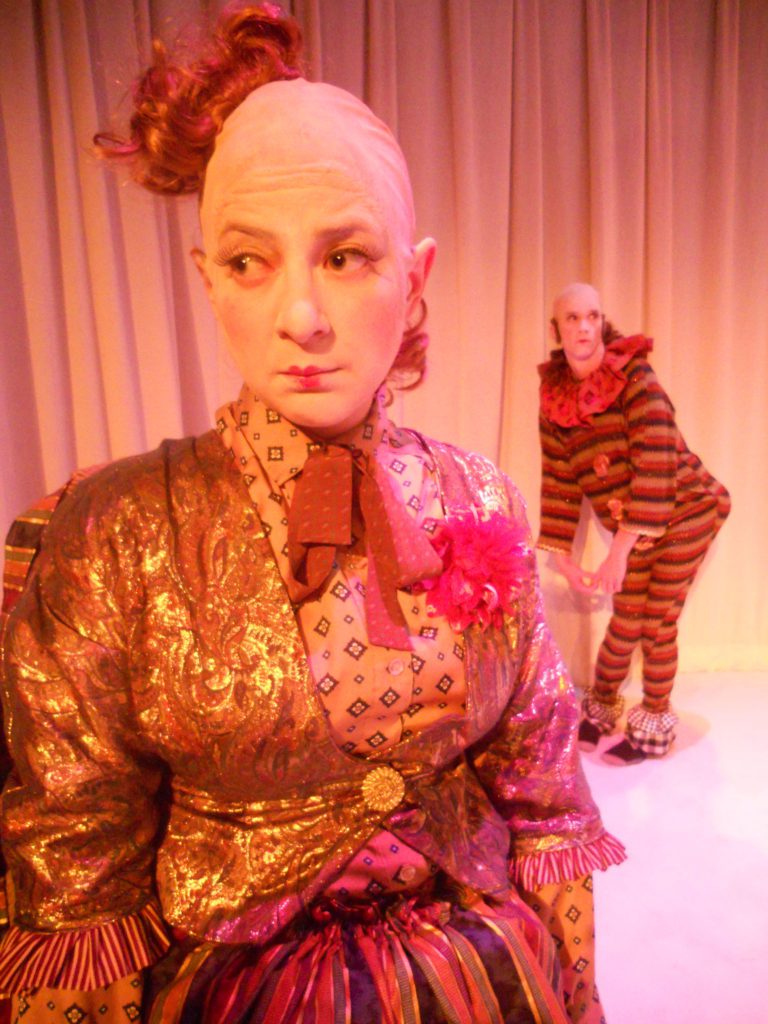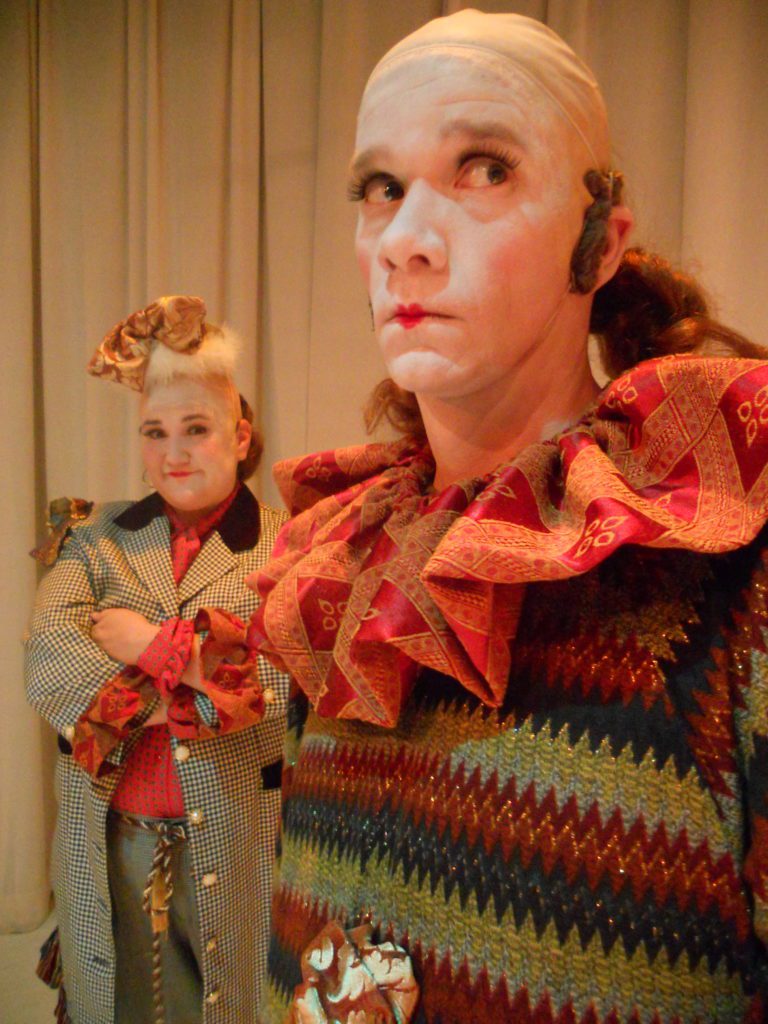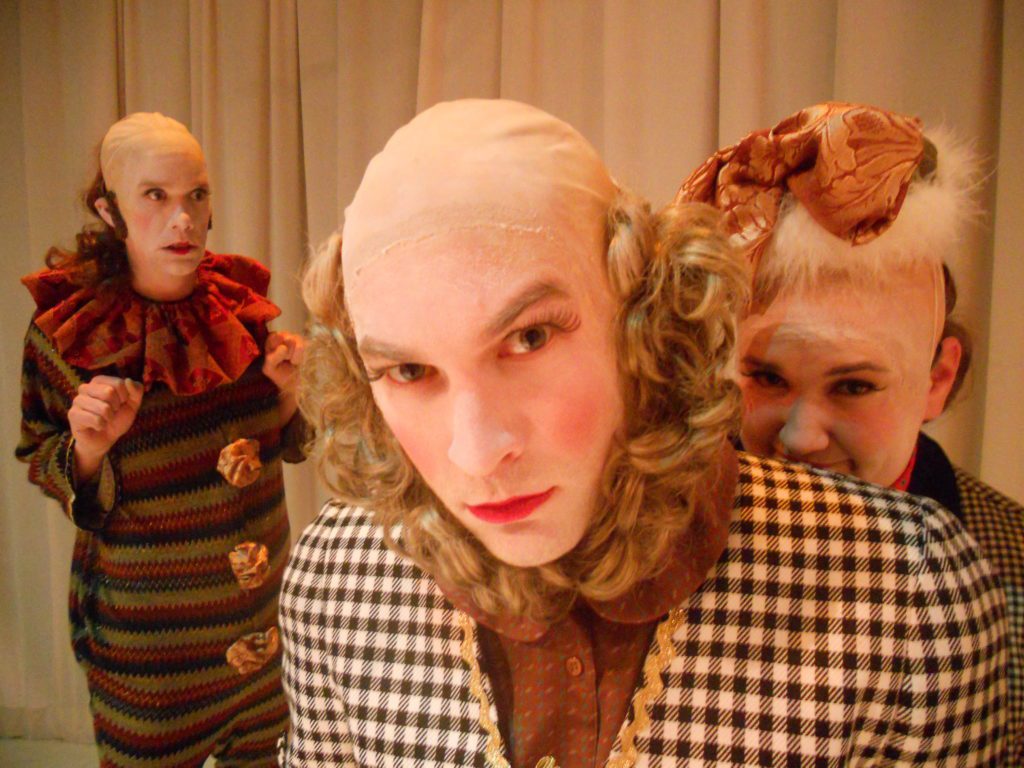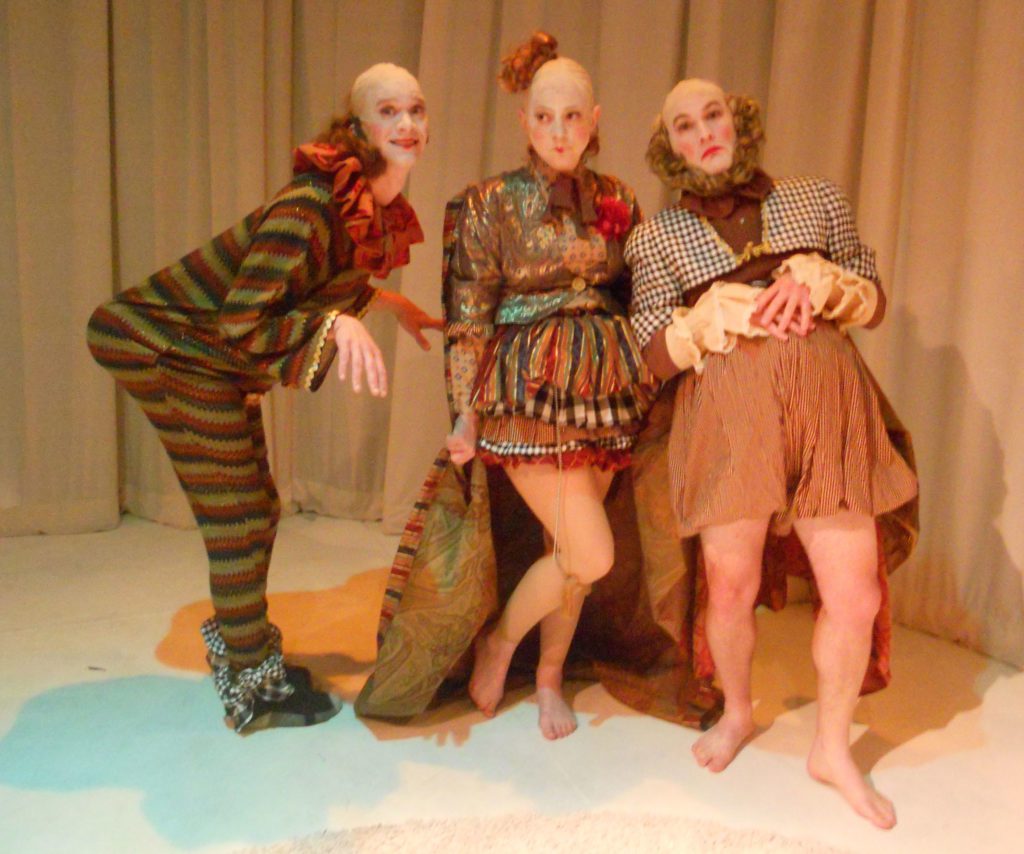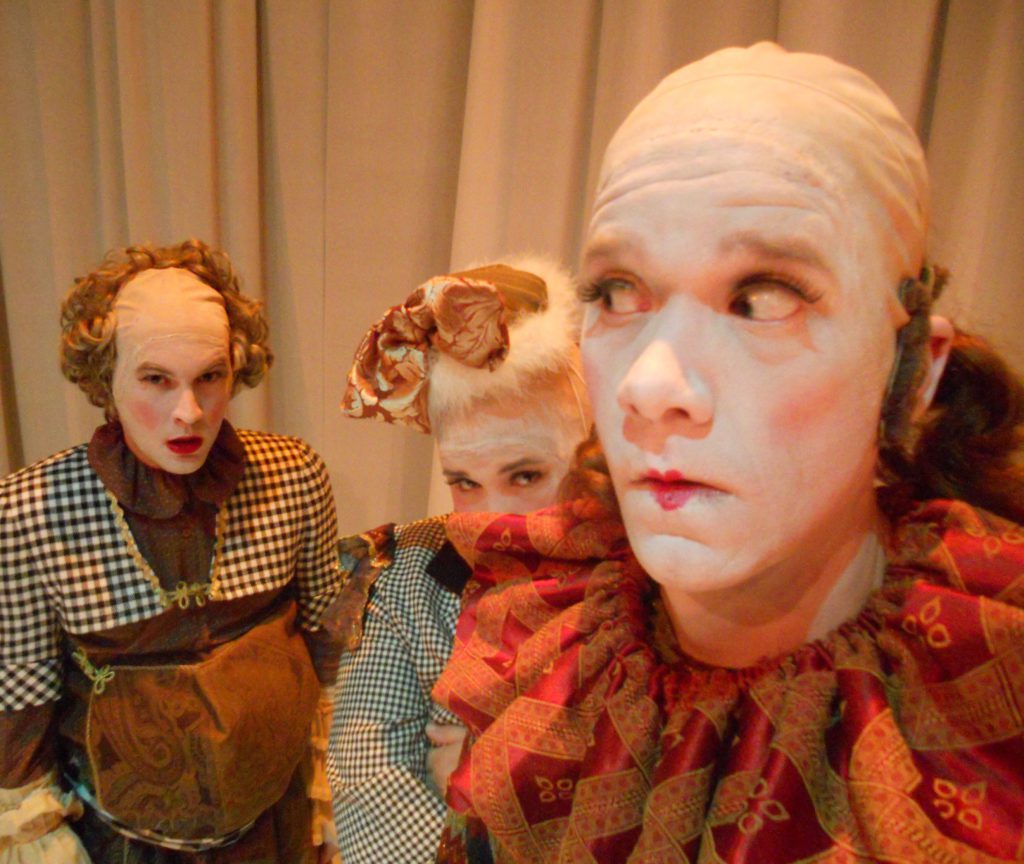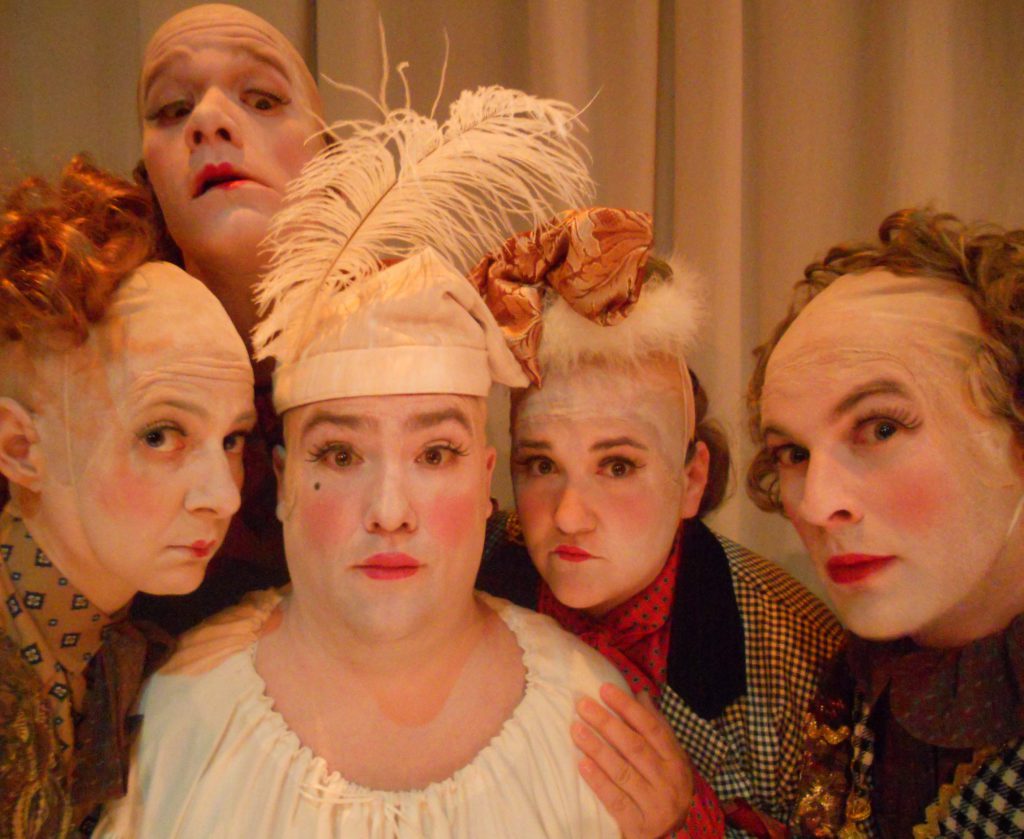Only Buntport Theater could create a tight, complete, meaningful, and funny production where the lead actor is a nearly-full-sized puppet of Tommy Lee Jones, operated and voiced by four members of the company, sitting in a diner having a piece of pie. No other company could even conceive of this idea, let alone build the puppet, develop the skills to operate it, and write a script that interlaces a serious conversation about art and performance with comic bits and surprises that no audience member could possibly anticipate. This is a revival of one of Buntport’s most popular shows from the last several years, the brilliant and successful Tommy Lee Jones Goes to the Opera Alone. Several of the shows have sold out, so don’t wait to make a reservation and go see this brilliant and unique production.
Tommy Lee is a puppet, sitting at a table in a diner. As the show opens, the puppet sits alone and lifeless, but soon Erin Rollman, Evan Weissman, Brian Colonna, and Erik Edborg wander in to bring the puppet to life. But first, they turn the convention of “invisible puppeteers” on its head. These are characters in their own right, and in the first moments of the play we learn that Weissman, Rollman, and Colonna, who operate the right hand, left hand, and head of Tommy Lee, are in a love triangle. But just as soon as we meet them, they zip up and are completely covered in black, and the puppet comes to life. Edborg sits at the table with the puppet, ensconced in black like the others, speaking the voice of the puppet. Hannah Duggan plays Jane, the (actual human) waitress that talks with the puppet, brings him pie and coffee, and discusses art, opera, and how Puccini’s opera Turandot “should” have ended. As we watch the remarkably expressive puppet, we are paradoxically impressed with how he is brought to life and frequently reminded that the puppeteers are not invisible, as they silently interact with each other and even the puppet himself. This is all exquisitely and impossibly consistent, and in and of itself is wonderful, but is just the medium that delivers the story.
The five onstage members of Buntport, along with the always-offstage SamAnTha Schmitz, create their productions as an integrated whole. The script writing is not separate from the directing or designing, which results in a remarkably cohesive production. That said, the show is very well directed – the puppeteers step out just enough, creating surprise and intrigue as they do, without overusing the device. The staging is simple, but direct and effective.
The acting, both by the actors and by the puppet, is wonderful. Edborg captures the iconic Texas drawl that we all know so well from many films. The mechanics of the operation of the puppet are fascinating, with the hands, fingers, eyebrows, and eyelids moving and grasping, showing expression and emotion. But the technical functioning of the puppet doesn’t dominate things more than necessary. It is enough to impress and intrigue the audience, but it is still there to deliver the story. Duggan’s Jane is completely natural as she talks with the puppet, and becomes very animated explaining alternate endings to Turandot. And while we do not see their faces very much, Weissman, Rollman, and Colonna clearly communicate the situation and emotions in silence.
The set is simple yet appropriate. The table and chairs capture a diner perfectly. The floor is Formica tiles that blend to black at the edges, with individual tiles hanging in space. The lighting sets the mood well. The costumes include an accurate diner waitress uniform, and neutral black coverings for the four puppeteers, which are used to both conceal them and highlight the moments when their characters are revealed. The sound is effectively integrated as well, with some fun lip-syncing, and the truly lovely music of Puccini integrated throughout.
Tommy Lee Jones (the puppet) states at one point that “art may be the saving grace of our civilization.” Buntport Theater’s production of Tommy Lee Jones Goes to the Opera Alone is a brilliant mix of puppetry, comedy, convention-bashing, grand opera, and thoughtful discussion of art. The play starts by talking about art and opera, and then transforms itself into grand opera. The medium that is used to deliver this story is clever, but it is only the start – the story, the interaction, the exposition, and the climax all combine to make this both meaningful and comic genius.
-Craig Williamson, January 21, 2015, North Denver Tribune
